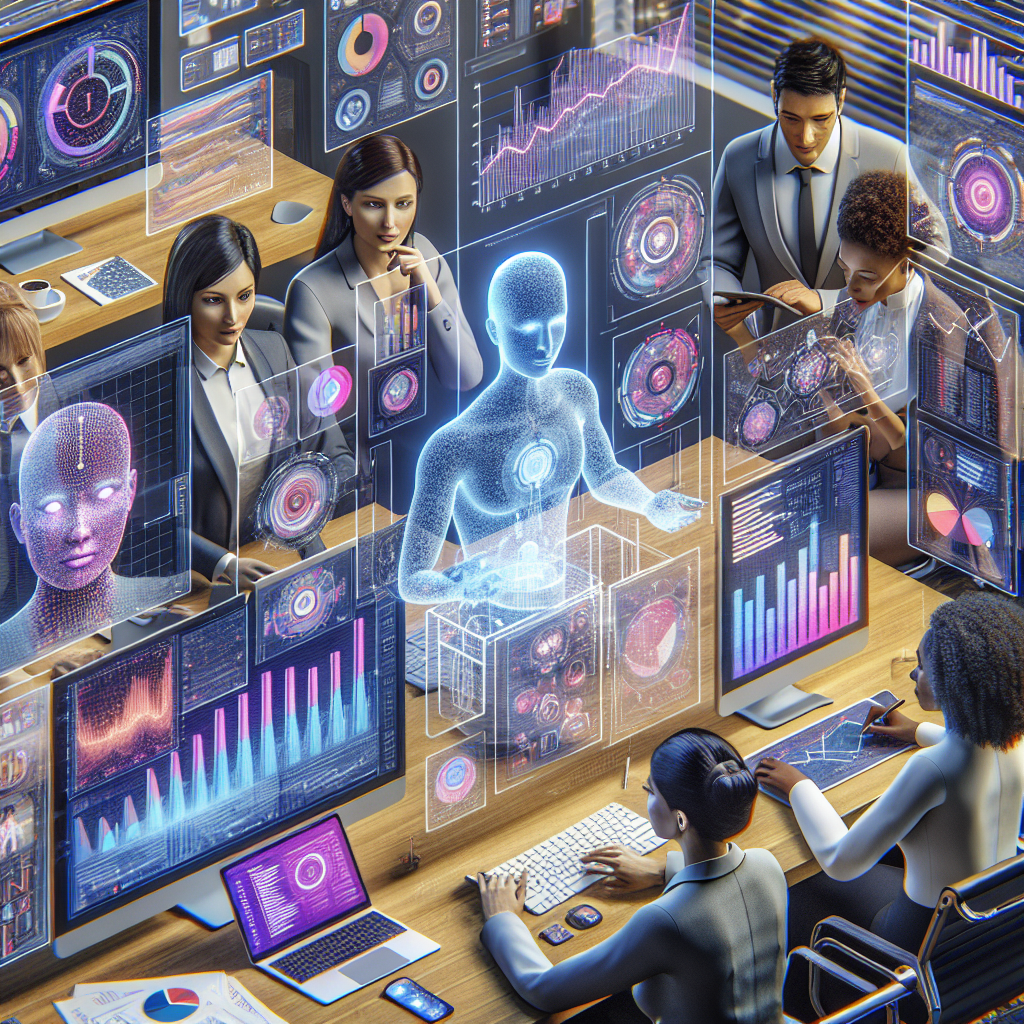In today’s fast-paced business environment, effective team collaboration is crucial for the success of any project. With the rise of artificial intelligence (AI) technology, project managers now have access to tools and platforms that can greatly improve team collaboration and streamline project management processes. In this article, we will explore how AI can enhance team collaboration in project management and discuss the benefits and challenges of implementing AI in project management workflows.
AI-powered project management tools offer a wide range of features that can help teams work more efficiently and effectively together. These tools can automate repetitive tasks, analyze data to provide insights, and even predict project outcomes based on historical data. By harnessing the power of AI, project managers can improve communication, increase productivity, and reduce errors in their projects.
One of the key ways AI can improve team collaboration in project management is by automating routine tasks. AI-powered tools can automate scheduling, resource allocation, and task assignment, freeing up team members to focus on more strategic and creative aspects of the project. By automating these repetitive tasks, project managers can save time and ensure that team members are working on the most important and high-impact tasks.
AI can also help improve communication among team members by providing real-time insights and feedback. AI-powered chatbots and virtual assistants can facilitate communication by providing information, answering questions, and even helping resolve conflicts among team members. These tools can also analyze communication patterns and provide recommendations for improving team dynamics and collaboration.
Another way AI can enhance team collaboration in project management is by analyzing data to provide insights and predictions. AI algorithms can crunch large amounts of data to identify patterns, trends, and potential risks in a project. By analyzing this data, project managers can make more informed decisions and take proactive measures to mitigate risks and ensure project success.
AI can also help improve team collaboration by facilitating knowledge sharing and learning among team members. AI-powered tools can recommend relevant resources, articles, and best practices to team members based on their roles, skills, and project requirements. By providing access to a wealth of knowledge and expertise, AI can help team members learn from each other and stay up-to-date on the latest trends and developments in their field.
Despite the numerous benefits of AI in project management, there are also some challenges and considerations that project managers need to keep in mind when implementing AI-powered tools. One of the main challenges is the potential for bias in AI algorithms. AI algorithms are only as good as the data they are trained on, and if this data is biased or incomplete, it can lead to inaccurate or unfair outcomes. Project managers need to be aware of this risk and take steps to ensure that their AI tools are trained on diverse and representative data.
Another challenge of implementing AI in project management is the need for ongoing training and support. AI technology is constantly evolving, and project managers need to stay up-to-date on the latest developments and trends in AI to fully leverage its potential. This may require investing in training programs for team members or hiring AI experts to help integrate AI into project management workflows.
Despite these challenges, the benefits of AI in project management far outweigh the risks. AI-powered tools can help project managers improve team collaboration, streamline project workflows, and increase productivity. By harnessing the power of AI, project managers can take their projects to the next level and achieve greater success.
FAQs:
1. How can AI help improve team collaboration in project management?
AI can improve team collaboration in project management by automating routine tasks, analyzing data to provide insights, facilitating communication among team members, and promoting knowledge sharing and learning.
2. What are some examples of AI-powered tools that can enhance team collaboration in project management?
Some examples of AI-powered tools that can enhance team collaboration in project management include AI-powered chatbots, virtual assistants, project management platforms, and data analytics tools.
3. What are the main challenges of implementing AI in project management?
Some of the main challenges of implementing AI in project management include the potential for bias in AI algorithms, the need for ongoing training and support, and the complexity of integrating AI into existing workflows.
4. How can project managers ensure that their AI tools are trained on diverse and representative data?
Project managers can ensure that their AI tools are trained on diverse and representative data by collecting data from a variety of sources, monitoring the performance of AI algorithms, and regularly updating and fine-tuning their AI models.
5. What are the benefits of using AI in project management?
Some of the benefits of using AI in project management include improved team collaboration, increased productivity, better decision-making, and reduced risks and errors in projects.

